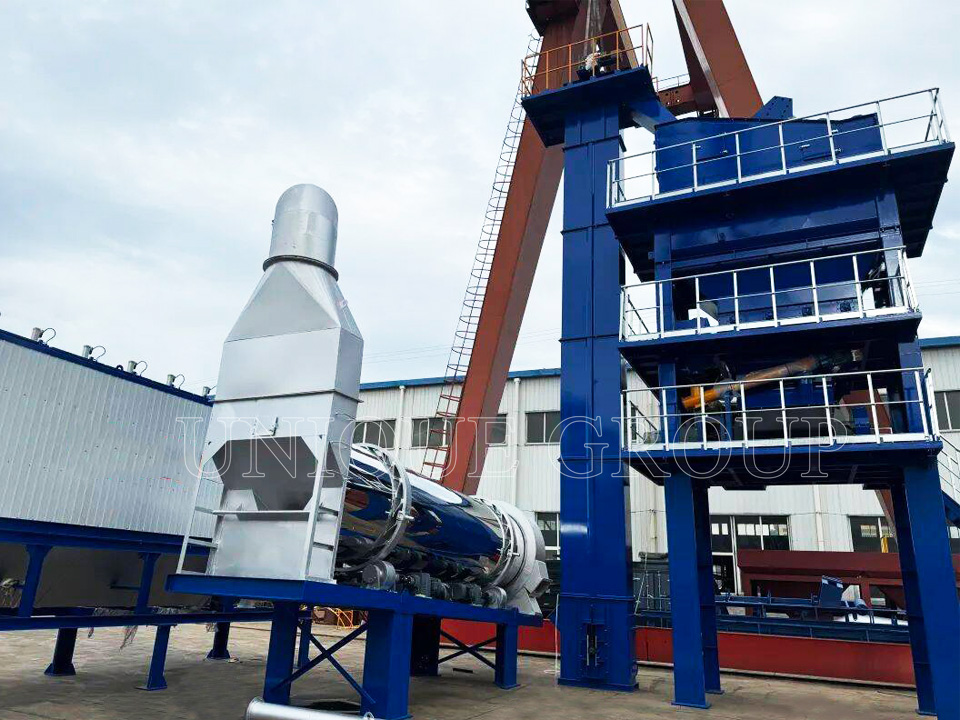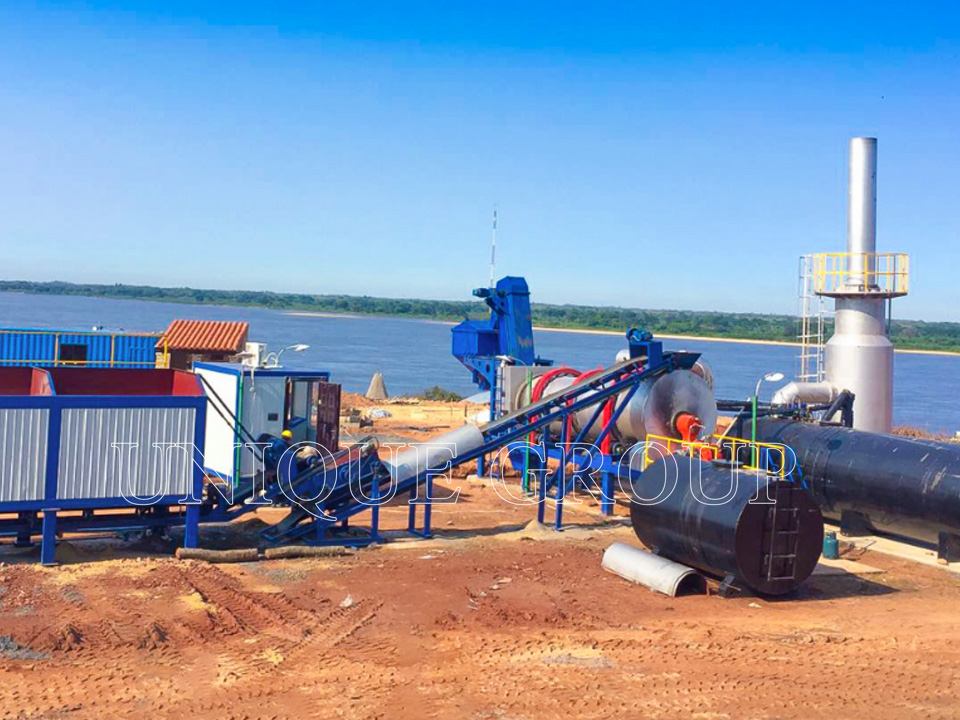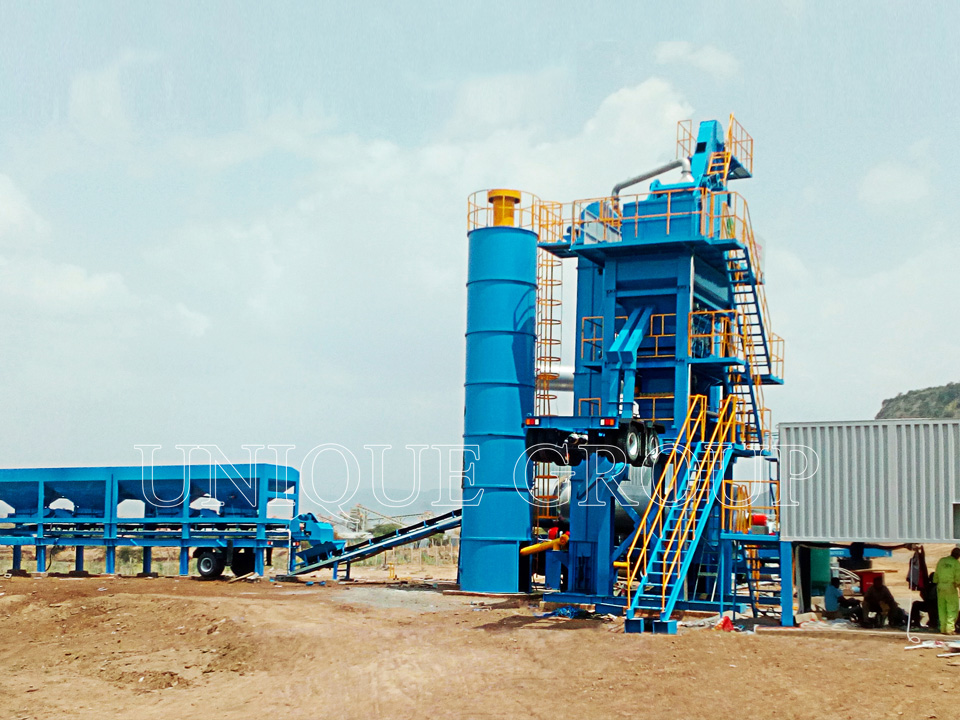Asphalt mixing plants are crucial for the construction and maintenance of roads, highways, and other infrastructure projects. These plants are designed to produce asphalt mixes efficiently and consistently, catering to diverse project requirements. Understanding the different types of asphalt mixing plants is essential for selecting the right equipment for your needs. Let’s explore the key categories and their features.
Batch mix plants produce asphalt in discrete batches. They are highly accurate in their mixing process, making them suitable for projects that require precise mix designs. The process involves separately heating aggregates and asphalt binder, then combining them in a mixer for a specific duration.
Precision: Offers high accuracy in batching and mixing, ensuring consistent quality.
Flexibility: Can handle a wide range of mix designs, including those with additives.
Control: Operators have greater control over the mixing process, which is beneficial for specialized projects.
Asphalt Batch mix plants are commonly used for high-capacity projects, such as highways and airports, where quality and consistency are critical. They are also preferred for producing modified asphalt mixes with additives like fibers or colorants.

Drum mix plants operate continuously, with aggregates and asphalt binder mixed in a drum as they move through the plant. The drum serves both as a dryer and mixer, which simplifies the process and reduces equipment requirements.
Continuous Production: Allows for a steady flow of asphalt mix, ideal for large-scale projects.
Cost-Effective: Lower initial investment and operational costs compared to batch plants.
Simplicity: Easier to operate and maintain due to fewer components.
Drum mix plants are well-suited for large-scale projects with consistent asphalt requirements, such as highway construction and overlays. Their continuous production capabilities make them efficient for projects with tight timelines.

Stationary asphalt plants are fixed installations designed for long-term use at a single location. They offer high production capacities and are built with robust components for durability.
High Capacity: Suitable for large projects with high asphalt demand.
Durability: Built to withstand continuous operation in a fixed location.
Efficiency: Optimized for maximum productivity and minimal downtime.
Stationary plants are typically used in urban areas or large construction sites where there is a consistent need for asphalt production over an extended period.
Mobile asphalt plants are designed for flexibility, allowing easy relocation from one site to another. They are mounted on trailers or chassis, making them ideal for projects in remote or temporary locations.
Portability: Can be transported quickly and set up with minimal downtime.
Modular Design: Components are designed for easy assembly and disassembly.
Versatility: Suitable for small to medium-sized projects with varying asphalt requirements.
Mobile asphalt plants are perfect for rural road construction, temporary repairs, and projects in areas with limited infrastructure. Their flexibility makes them a cost-effective solution for short-term projects.

When selecting an asphalt mixing plant, consider the following factors:
Project Scale: Batch plants are ideal for smaller projects, while drum plants are better suited for large-scale operations.
Location: Stationary plants are best for permanent installations, while mobile plants offer flexibility for temporary or remote sites.
Mix Design Requirements: Batch plants provide greater precision, making them suitable for specialized mixes.
Budget: Drum plants generally have lower initial and operational costs compared to batch plants.
At UNIQUEMAC, we are dedicated to providing state-of-the-art asphalt mixing solutions tailored to your needs. Whether you require a stationary plant for a large project or a mobile plant for remote locations, we offer a range of options to meet your specifications. Our expertise in asphalt plant design and manufacturing ensures that you receive high-quality equipment that delivers exceptional performance and reliability.
Contact us today to explore how UNIQUEMAC can support your asphalt production needs with cutting-edge technology and unparalleled service.
Copyright © 2025 UNIQUE GROUP | All Rights Reserved
Hello, please leave your name and email here before chat online so that we won't miss your message and contact you smoothly.